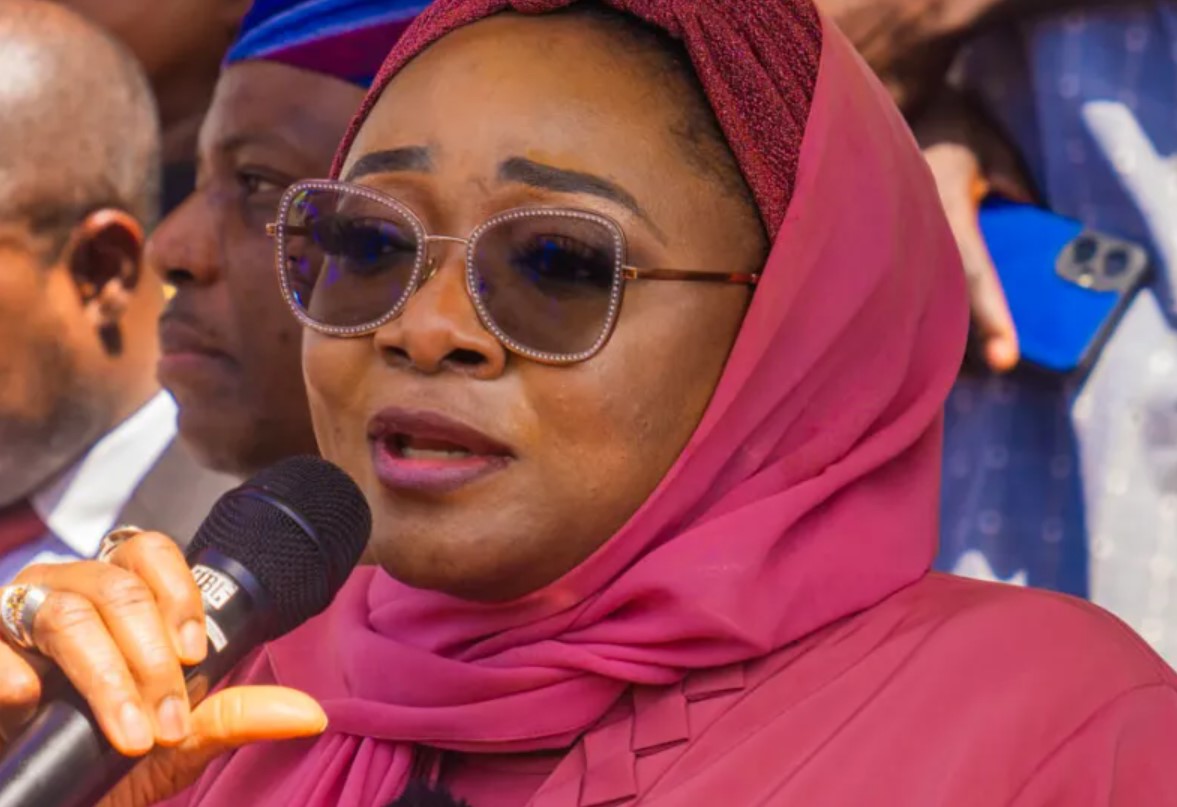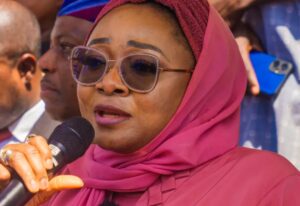
What we will do to close gender gap in Nigeria — Minister
- Gender
- No Comment
- 177

While the minister admitted that the goals are “ambitious,” she urged MDAs, private sector, civil society, and international partners to align efforts to avoid duplication and maximise resources.
Nigeria’s newly deployed Minister of Women Affairs and Social Development, Imaan Sulaiman-Ibrahim, has assumed office and made her inaugural speech outlining her vision to achieve gender parity in Nigeria.
Mrs Sulaiman-Ibrahim spoke on Monday at the Federal Ministry of Women Affairs in Abuja on the ministry’s plan to close the gender gap and foster equal opportunities in Nigeria.
The former Minister of State, Police Affairs was reassigned when President Bola Tinubu reshuffled his cabinet, sacking the previous Minister of Women Affairs, Uju Kennedy-Ohaneye, and four others.
‘New Era’
Mrs Sulaiman-Ibrahim thanked President Bola Tinubu for her appointment, noting that despite making up nearly half of the country’s population, Nigerian women still face significant social, economic, and political barriers.
She emphasised skills development, entrepreneurial support, employment opportunities, and political participation as key to achieving gender balance.
She noted that the ministry is resolved to bridge the gender gap by “untangling deeply rooted discriminatory practices.”
Decisive actions
Mrs Sulaiman-Ibrahim reiterated the ministry’s commitment to taking decisive action, going beyond monitoring law enforcement to ensure effective implementation of policies protecting vulnerable groups including women, children and persons with disabilities.
She said: “I am very aware that despite Nigeria’s nearly equal male and female population in Nigeria, statistics reveal that job placements, appointments, and elective positions remain significantly skewed in favour of men.
“Currently, women hold less than five per cent of elective positions nationwide and occupy less than 22 per cent of senior leadership roles in the private sector. We are committed to intensifying efforts to close this gender inclusivity gap by fostering equal opportunities for both men and women.
“Our mission will be driven by policies that support women’s advancement through education, vocational training, and professional and leadership development. Only with these targeted actions can we build a fairer and more balanced workforce landscape in Nigeria.”
As a nation, she said, we have long affirmed our commitment to gender equality by ratifying significant international conventions, such as the Convention on the Elimination of All Forms of Discrimination Against Women (CEDAW) and the African Union’s Maputo Protocol.
“We have also adopted the ECOWAS Gender Policy. These frameworks are not mere formalities but powerful instruments for social change,” she further said.
“As we approach 2025, marking the 30th anniversary of the Beijing Platform for Action and the 10th anniversary of the 2030 Sustainable Development Agenda, we will intensify our commitment by producing a comprehensive country report to assess our progress, learn from our journey, and recalibrate our strategies.”
Blueprint
Speaking on specific goals to be achieved, the minister said the ministry will advocate laws that empower women and ensure their rights are protected.
She noted that they will work closely with lawmakers and Civil Society Organisations to bring discriminatory laws to an end.
On gender-based violence, she said there will be collaboration with the police and the Federal Ministry of Justice to ensure a robust and effective responses to such incidents, adding that survivors will have access to swift and fair justice.
“We will expand social services, ensuring they are equipped to support survivors of violence and collaborate with partners to create safe spaces for those affected,” she said.
“In partnership with stakeholders, we will strengthen guidelines and protocols for the protection of children from abuse, trafficking, and exploitation. The well-being of our children will always be a top priority.”
She also said her tenure will ensure that women’s voices are heard and represented in all areas of governance, adding that Nigeria will become Africa’s leader in gender equity.
While the minister admitted that the goals are “ambitious,” she urged Ministries, Departments And Agencies (MDAs), private sector, civil society, and international partners to align efforts to avoid duplication and maximise resources.
Mrs Sulaiman-Ibrahim also expressed appreciation to her predecessor for her “invaluable efforts” and “strong foundation.”
Gender balance
Gender equality is a significant issue in the Nigerian patriarchal society.
Women contribute significantly to Nigerian politics, especially on election days, but their representation in political and decision-making positions needs to be improved.
In his inaugural speech in 2023, President Bola Tinubu promised to feature women “prominently,” in his administration.
However, he only achieved five per cent gender inclusion in his first year.
This is despite a two-year old landmark judgement ordering the Nigerian government to implement the National Gender Policy by alloting 35 per cent appointment in the public sector to women.
According to the policy, women empowerment and gender equality are fundamental human rights at the core of equitable development.
By Oluwakemi Adelagun



